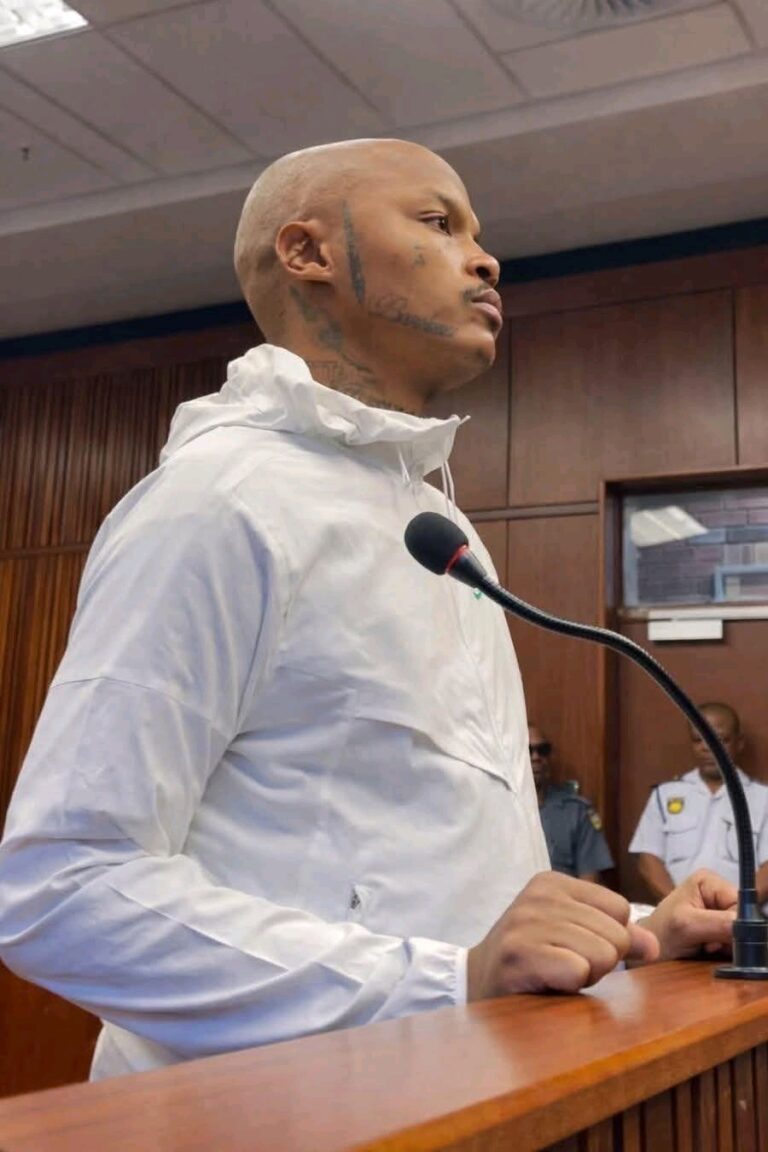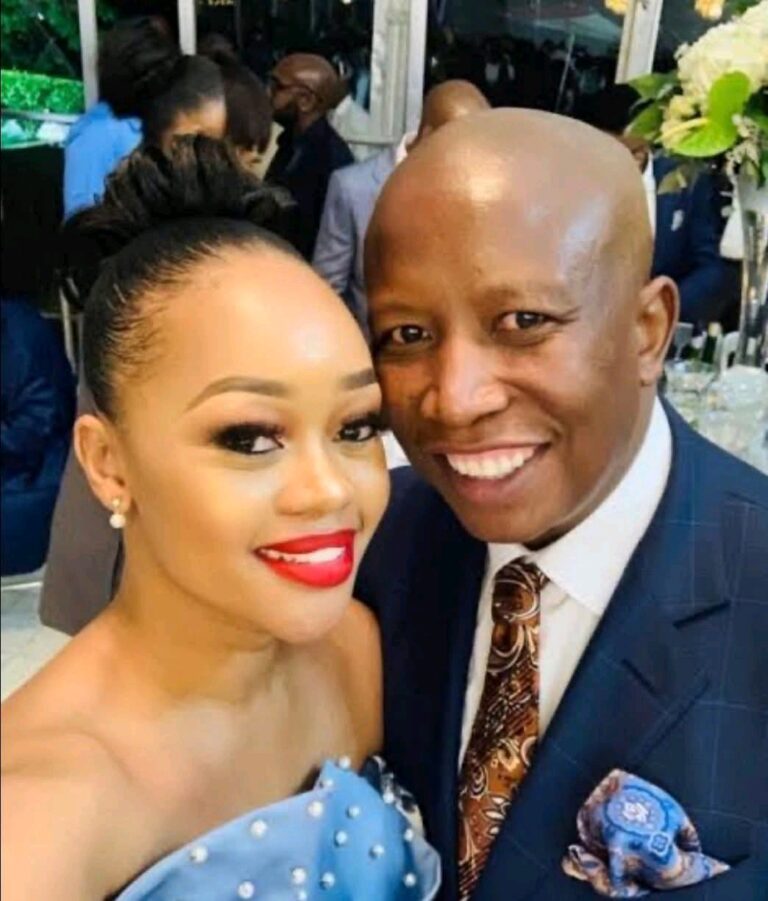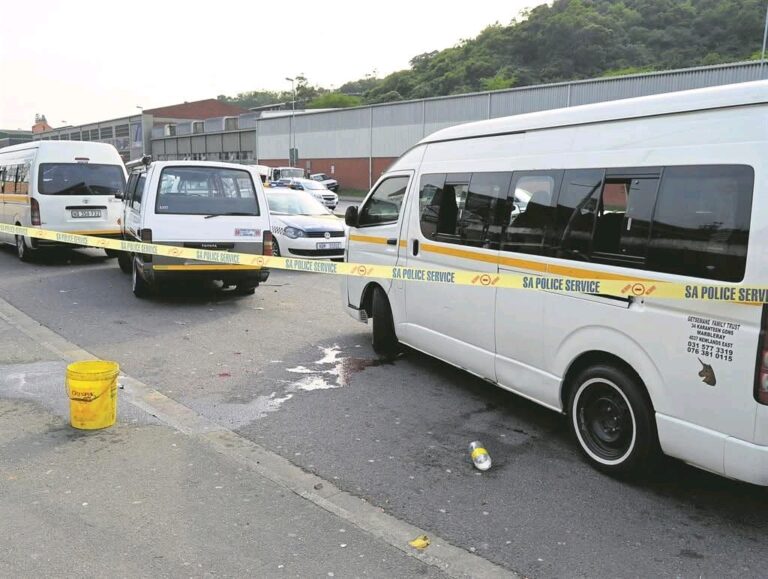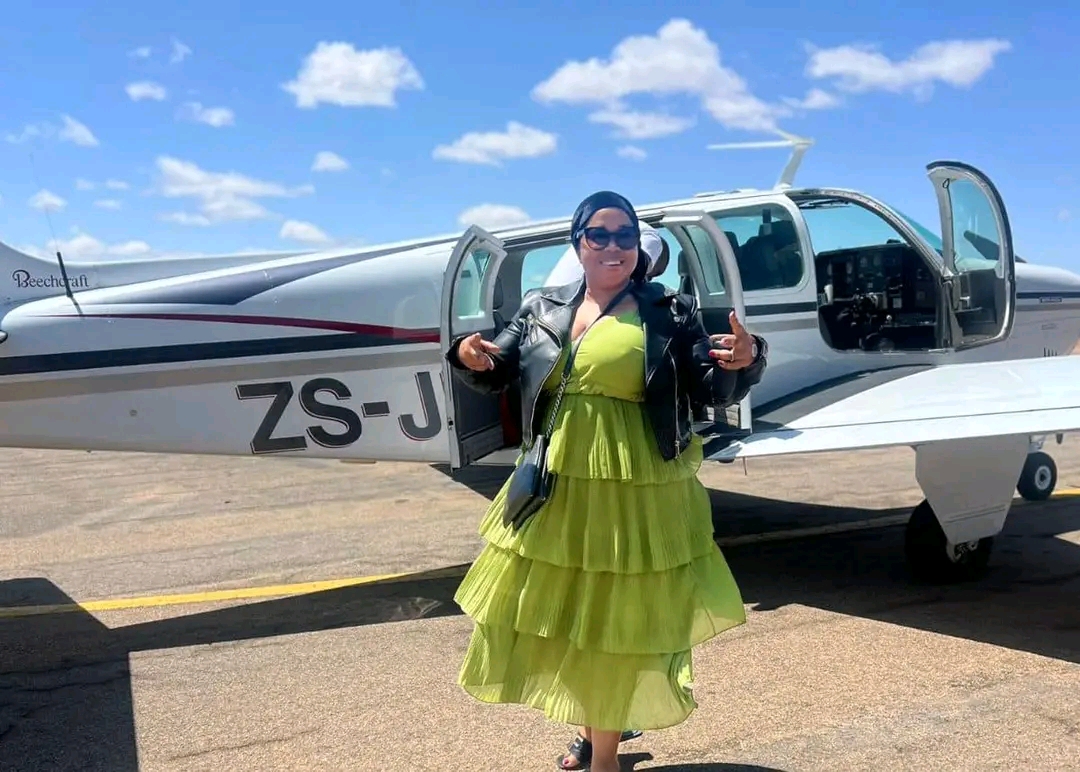
Winnie Mashaba, a prominent figure in the South African gospel music scene, reportedly faced a significant backlash after her controversial arrival at the memorial service of her late colleague, Solly Moholo, on Saturday, 12 October. The criticism stemmed from her decision to attend the service in a helicopter, which sparked outrage on social media and led to claims that she was subsequently banned from the funeral.
According to an unnamed artist who spoke to a local publication, Mashaba was allegedly instructed by the Association for the Entertainers of SA (AESA) that she was not welcome at Moholo’s funeral. The organization reportedly conveyed the family’s wishes to prevent her attendance, citing the controversial nature of her entrance as the primary reason for this decision.
Sources claim that the family’s perception of Mashaba’s actions was that she was attempting to showcase her wealth and status by arriving in such a lavish manner. Critics pointed out that her choice to fly in a helicopter was seen as a stark contrast to the somber occasion and suggested that it demonstrated a lack of respect for Moholo and his grieving family.
Moreover, there were allegations regarding Mashaba’s financial responsibilities towards Moholo, who was battling health issues prior to his passing. Reports indicated that she had failed to contribute to his medical expenses, which were nearing a staggering one million rand. This raised questions about her priorities and intentions, especially in light of her high-profile entrance at the memorial service.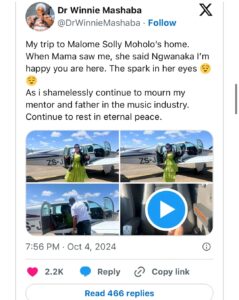
The fallout from the incident has ignited a broader conversation about the responsibilities of artists and their public personas, particularly when attending events that commemorate the lives of fellow entertainers. Many fans and industry insiders expressed their disappointment with Mashaba’s actions, suggesting that a more humble approach would have been more appropriate given the circumstances.
As the news continues to circulate, the incident has prompted discussions on social media about the expectations placed on public figures during times of mourning. Some have defended Mashaba, arguing that her choice of transportation should not overshadow the contributions she made to the industry and her friendship with Moholo. However, the majority sentiment appears to lean towards viewing her actions as inappropriate for the occasion.
This controversy highlights the delicate balance that artists must maintain between their public image and personal relationships. It serves as a reminder that, in an industry heavily scrutinized by fans and media alike, actions can have significant repercussions. The situation underscores the importance of sensitivity and respect, particularly in the face of loss.
In the wake of these events, it remains to be seen how Mashaba will respond to the criticism and whether the fallout will affect her standing within the industry. The legacy of Solly Moholo, a beloved figure in South African music, continues to be celebrated, and it is hoped that the focus will shift back to honoring his memory rather than the controversy surrounding his memorial service. As fans reflect on Moholo’s impact, they are reminded of the need for compassion and understanding during difficult times in the entertainment world.


